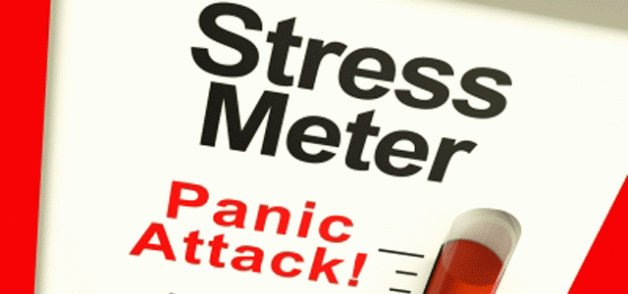Many of us have experienced high levels of anxiety before speaking events, singing in public, or preparing for an exam. In fact, the greatest phobia is speaking in public.
If you have ever experienced a period of high anxiety, you may remember your palms sweating, feeling a lump in your throat, and possibly racing heartbeat and fearful thoughts. For people experiencing a full blown panic attack, you can triple the severity of these symptoms. People experiencing a full blown panic attack may fear they will die, or feel immobilized. Even more frustrating, there may be few warning signs, making it difficult to know when the next panic attack will occur.
The most important thing to remember: people experiencing a panic attack are not “making it up”, or “trying to get attention”.
Panic attacks are a very real disorder where the brain perceives danger, and the body physiologically responds with “fight or flight”. The brain prepares the body to either “fight” the perceived threat, or run away “flight”. There may, or may not, be a recognizable triggering event to a panic attack.
POSSIBLE SIGNS OF A PANIC ATTACK
- Increased heart beat and respiration.
- Racing thoughts.
- Increased sweating.
- Thoughts of overwhelming dread.
- Desire to run away, hide, or strike out.
- Feeling like you are going to die.
- Physical sensations resembling a heart attack.
- Feeling frozen or immobilized.
WHAT TO DO DURING A PANIC ATTACK
- Stop what you are doing, take a breath.
- Attempt to move yourself to a quiet location.
- Remind yourself “This will pass”.
- Practice slow, deep, belly breathing.
- Breathe and visually/physically connect with your surroundings. For example: Feel the sensation of your feet on the floor, or your hand against a wall.
- Allow the panic attack to run its course. It will end.
Why?
As explained above, the body prepares to protect itself from a perceived threat, which creates physical tension in order to respond. In addition, your mind moves to a pin-point focus as a protective measure. This means you’ll not be thinking rationally, nor be able to consider various rational options, or have a complex conversation. If you create more tension by “bracing yourself against the attack”, or trying to talk yourself out of it; chances are the attack will worsen, as this will increase the amount of tension in your body.
Thus, keeping things simple and creating relaxation, will allow the attack to subside, allowing you to regain your composure. When the attack ends, generate gentle and compassionate thoughts, enabling your body to remain relaxed. Take a moment to connect with what you were doing, and move ahead with your day.
This information is limited to steps to manage a full blown panic attack. There are longer term interventions to reduce overall anxiety and chances of a panic attack.
If you would like to know more about anxiety and panic attacks, contact me for a free consultation.
